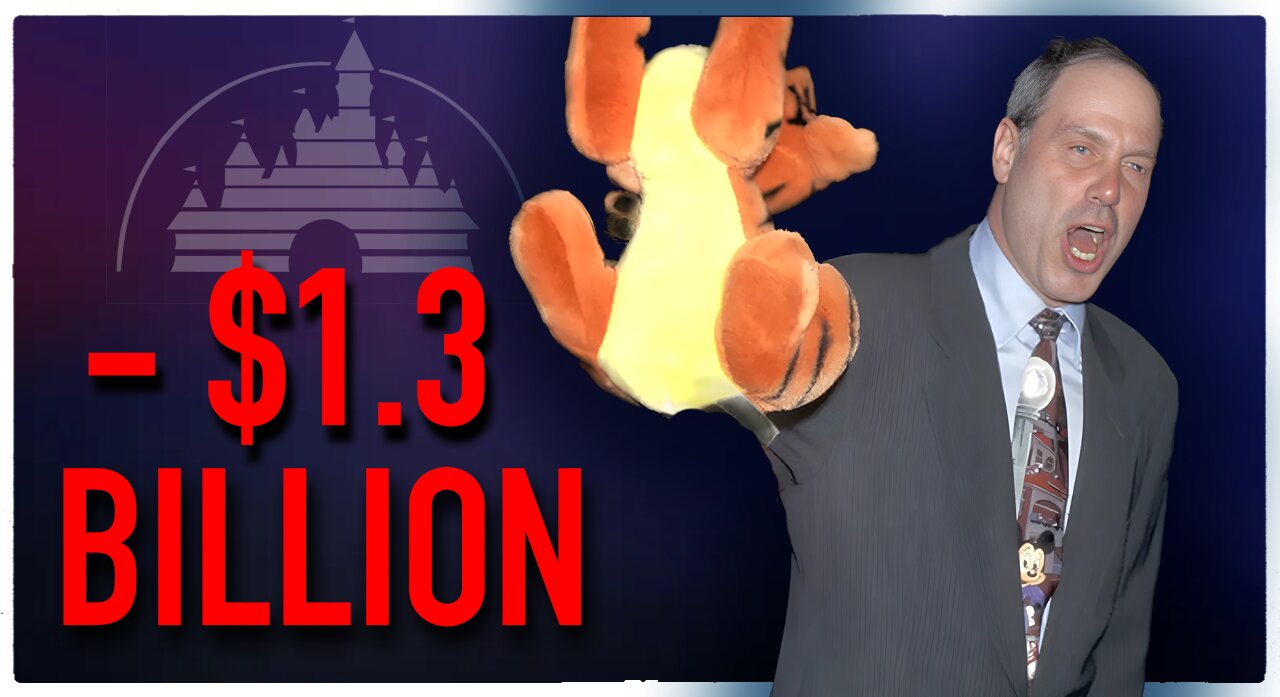Premium Only Content

Disney’s DUMBEST Business Venture
Go.com was the $1.3 billion dollar fail that almost broke the Disney corporation in the early 2000’s.
In the late 1990s, as the digital revolution was gaining momentum, Disney recognized the need to establish a robust online presence. This realization led to the conception of Go.com, a visionary project that aimed to leverage the burgeoning internet to promote Disney's vast array of content. With an estimated expenditure of a staggering 1.3 billion dollars, Go.com was poised to be a game-changer for the entertainment giant.
Officially registered on January 9, 1998, Go.com was envisioned as a portal that would serve as the gateway to Disney's expansive content universe. This strategic move followed Disney's acquisition of the Infoseek search engine, setting the stage for a pioneering venture known as the Go Network. Launched on January 15, 1999, the Go Network boasted an impressive lineup of content providers including Disney, ABC News, ESPN, Buena Vista, and various other entities operating under the Disney umbrella.
In its nascent stages, Go.com garnered significant attention through seamless integration into a myriad of media channels. Soap operas, movies, news broadcasts, sports events, and even Disney's own programming proudly declared their affiliation with the Go Network, enticing curious visitors to explore the platform. The initial reception appeared promising, hinting at potential success for Go.com.
However, as the project gained traction, it encountered a series of formidable challenges that ultimately foreshadowed its tumultuous trajectory. One pivotal setback arose in January 2000 when Go.com was compelled to abandon its original stoplight logo due to a trademark complaint filed by GoTo.com, a pre-existing search engine with a strikingly similar logo. This legal dispute, coupled with GoTo.com's established presence, raised concerns that Disney's branding strategy could potentially confuse and divert users from the competitor. A judicial ruling sided with GoTo.com, resulting in a substantial settlement of 21.5 million dollars against Go.com.
Another pivotal issue emerged as Disney grappled with the financial burden of operating a broad-spectrum search engine. The lack of a clear-cut business model and the exorbitant costs associated with maintaining such a platform led to a strategic pivot. Company officials announced a shift from a general-purpose portal to one focused exclusively on entertainment content. While this adjustment allowed for better management of resources, it also led to a decline in visitor numbers and a dip in the site's overall popularity.
Furthermore, it became evident that internet users gravitated towards search engines for direct access to content, rather than relying on directories. This user behavior posed an insurmountable challenge for Disney, despite extensive promotional efforts on their own shows and affiliated channels.
In March 2001, Go.com made a significant move by transitioning to a search engine provided by goto.com, a pivotal decision that marked a turning point for the project. Simultaneously, Disney announced the impending closure of Go.com, prompting the layoffs of approximately four hundred employees and the retirement of the Go.com portal. This move also signified the end of Go.com's volunteer-edited directory, leading some volunteers to establish or migrate to offshoot directories like JoeAnt, GoGuides.org, and Skaffe.com.
Surprisingly, despite the announcement of its closure, Go.com has defied expectations and remains operational to this day. Its current iteration resembles a comprehensive sitemap, aggregating links to all of Disney's products, online resources, and associated businesses.
The saga of Go.com serves as a cautionary tale for even the most visionary of companies. While Disney has proven itself adept at creating and managing iconic brands, Go.com stands as a stark reminder of the perils of venturing into new technological frontiers without a clear business model or a deep understanding of the associated costs. Ultimately, the project's downfall can be attributed to a failure to acknowledge and adapt to user preferences for a browsing experience free from overt corporate influence. As the dust settles, Go.com remains a testament to the complexities and challenges of the digital landscape, leaving an indelible mark on Disney's storied history.
Music:
Forzisimo Adrián Berenguer
Dream It - TrackTribe
-
 1:06:04
1:06:04
The Big Mig™
18 hours agoGlobal Finance Forum Powered By Genesis Gold Group
18.7K2 -
 34:38
34:38
Tudor Dixon
3 hours agoThe Changing Landscape Between Tech and Politics with Mike Benz | The Tudor Dixon Podcast
12.5K1 -
 2:23:58
2:23:58
Matt Kohrs
14 hours agoRumble's Stock Is EXPLODING!!! || The MK Show
68.6K6 -
 1:57:47
1:57:47
LFA TV
16 hours agoBOMBSHELL FINAL REPORT: BIDEN ADMIN SUPPRESSED WUHAN LAB LEAK | LIVE FROM AMERICA 12.27.24 11am EST
36.7K5 -
 43:07
43:07
Grant Stinchfield
3 hours ago $2.68 earnedWe Built it... China Controls it... Trump Will Take it Back!
15.1K7 -
 35:05
35:05
Rethinking the Dollar
3 hours agoTime to Pay the Piper! Debt Refinance Crisis Coming in 2025
17K2 -
 52:34
52:34
PMG
16 hours ago $3.81 earnedHannah Faulkner and Steve Friend | EXPOSE THE FBI CORRUPTION - KASH PATEL
16.1K8 -
 2:58:58
2:58:58
Wendy Bell Radio
9 hours agoOn Day One
86.3K76 -
 1:59:27
1:59:27
Jeff Ahern
5 hours ago $3.86 earnedFriday Freak out with Jeff Ahern (6am Pacific)
29.9K1 -
 1:56:07
1:56:07
Game On!
14 hours ago $1.66 earnedJosh Allen is the NFL MVP! It's not even close!
23.6K2